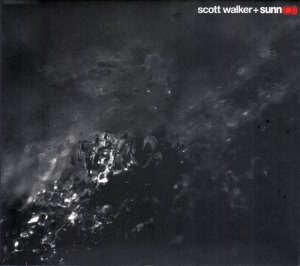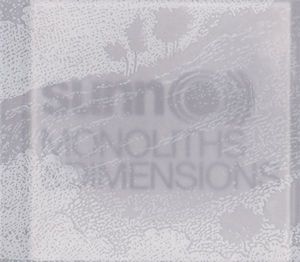Scott Walker + Sunn O))) – Soused 4AD CAD3428CD (2014)
Scott Walker continues to challenge himself and audiences. With Soused, he has teamed with drone metal outfit Sunn O))). Comparisons have been drawn to Lou Reed‘s collaboration with Metallica on Lulu (2011), but comparisons could equally be drawn to Tony Conrad working with Faust on Outside the Dream Syndicate (1972). The album opens strongly with the two best tracks, “Brando” and “Herod 2014.” “Brando,” which might have been inspired by the strange Arthur Penn western The Missouri Breaks (1976) starring Marlon Brando and Jack Nicholson, sounds the most like Walker’s most recent albums. There is a recurring riff a bit like Guns N’ Roses‘ “Sweet Child O’ Mine,” deflated and blunted. The second track, “Herod 2014,” is the story of a mother hiding her children…from something not really named. The song title is a reference to the biblical king of Judea. There is a small bell that is repeatedly rung throughout the song, somewhat loudly at first but then pushed back into the background so that it is barely perceptible. In an interview, Walker said, “The bell, in a sense, is representing her.” The rest of the tracks, all written by Walker, come closer to the usual sound of Sunn O))). They aren’t quite up to the first two tracks, but they don’t disappoint either. This is a grim, confrontational album that tries to provoke and prod listeners. But it also draws on plenty of dark, gallows humor. It may not be the finest from either Walker or Sunn O))), but it is a worthy collaboration that finds a lot of common ground.


